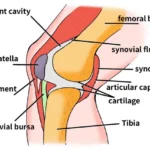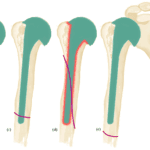Arm pain, whether from injury, nerve compression, or chronic conditions, can significantly impact your ability to get a good night’s sleep. The discomfort can make it difficult to find a comfortable sleeping position, leading to restless nights and daytime fatigue. However, there are several strategies you can employ to improve your sleep quality despite the pain.
Understanding Arm Pain and Sleep
Arm pain during sleep can arise from various causes, including injuries (like fractures or sprains), nerve compression (such as in carpal tunnel syndrome), or conditions like arthritis. The pain often worsens at night due to decreased movement and the drop in cortisol levels, which can increase inflammation.
Choosing the Right Sleeping Position
Finding the right sleeping position is crucial for reducing arm pain. Here are some recommended positions:
- Back Sleeping: Sleeping on your back with your arm supported by a pillow is often the best option. This position helps keep your spine aligned and reduces pressure on your arm.
- Side Sleeping: If you prefer sleeping on your side, place a pillow between your arms to prevent compression and ensure that your affected arm is well-supported.
- Avoid Stomach Sleeping: Sleeping on your stomach can exacerbate arm pain by placing additional strain on your neck and shoulders.
Using Pillows for Support
Pillows play a vital role in alleviating arm pain during sleep:
- Wedge Pillows: These can be used to elevate your arm, reducing swelling and pain. Elevation is especially important if your arm is injured or if you’re recovering from surgery.
- Orthopedic Pillows: Designed to support the neck and spine, these pillows can help reduce nerve compression, which is a common cause of arm pain.
- Body Pillows: These can provide additional support and prevent you from rolling onto your arm during the night.
Pain Management Techniques
Managing pain before bed is essential for a restful sleep:
- Heat Therapy: Applying a warm compress or using a heating pad on the affected area before bed can help relax muscles and reduce pain.
- Cold Therapy: Alternatively, cold packs can be used to reduce inflammation and numb the pain.
- Medication: Over-the-counter pain relievers like ibuprofen or acetaminophen may be recommended by your doctor to help manage pain at night.
Creating a Sleep-Conducive Environment
Your sleep environment can also influence your comfort:
- Keep the Room Cool: A cool room can help you sleep more comfortably, especially if your arm is in a cast or brace, which can generate additional heat.
- Minimize Noise and Light: Use blackout curtains and white noise machines to create a quiet, dark environment conducive to sleep.
Relaxation Techniques
Incorporating relaxation techniques into your bedtime routine can also help:
- Deep Breathing Exercises: These can help calm your mind and reduce the perception of pain.
- Meditation: Guided meditation can help shift your focus away from the pain and promote relaxation.
- Gentle Stretching: Stretching your arm gently before bed can help relieve muscle tension and prepare your body for sleep.
Frequently Asked Questions
- Why does my arm pain get worse at night? At night, the body produces less cortisol, a hormone that reduces inflammation. As a result, inflammation and pain can increase, making arm pain more noticeable during the night.
- What is the best sleeping position for arm pain? Sleeping on your back with your arm supported by a pillow is generally the best position, as it helps keep your spine aligned and reduces pressure on the arm.
- Can heat or cold therapy help with arm pain at night? Yes, both heat and cold therapy can be effective. Heat helps relax muscles, while cold therapy reduces inflammation and numbs the pain.
- How can I prevent my arm from hurting during sleep? Using supportive pillows, choosing the right sleeping position, and managing pain through therapy or medication can help prevent arm pain during sleep.
- Should I see a doctor if my arm pain keeps me from sleeping? If your arm pain is severe or persistent, it’s important to consult a healthcare professional. They can help determine the underlying cause and recommend appropriate treatment.
By following these tips and strategies, you can improve your sleep quality despite arm pain, helping you wake up feeling more refreshed and less discomforted.





